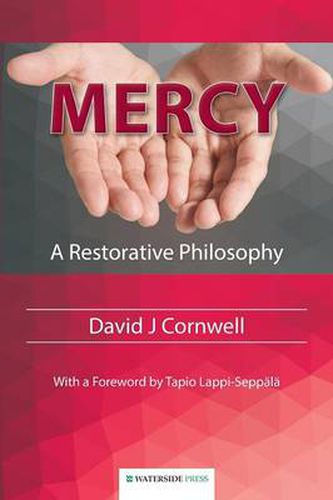Readings Newsletter
Become a Readings Member to make your shopping experience even easier.
Sign in or sign up for free!
You’re not far away from qualifying for FREE standard shipping within Australia
You’ve qualified for FREE standard shipping within Australia
The cart is loading…






This title is printed to order. This book may have been self-published. If so, we cannot guarantee the quality of the content. In the main most books will have gone through the editing process however some may not. We therefore suggest that you be aware of this before ordering this book. If in doubt check either the author or publisher’s details as we are unable to accept any returns unless they are faulty. Please contact us if you have any questions.
Restorative justice has attracted increasing support world-wide, but it sits uncomfortably alongside entrenched attitudes towards punishment and retribution. Because it does not involve ‘locking-up people and throwing away the key’ it is not favoured reading for risk-averse politicians or the media. There are also vested interests at play which can be traced back to when the state first sought to enhance its coffers and cast victims to the side lines. As a result, the concept of ‘mercy’ has become largely lost, distorting relationships between victims, offenders and communities. The author argues that rediscovering mercy would lead to a more humane and purposeful form of criminal justice. His book looks at the characteristics of mercy and explains how it has become confused with mitigation and leniency. He goes on to deconstruct and analyse current theoriesa and make proposals for reform. Long-overdue reform of contemporary criminal justice necessitates, as the author argues, a ‘paradigm-shift’ requiring inspired political leadership and a consensus to ‘do justice better’ between policy-makers, academics, jurists, criminal justice professionals and opinion-formers. The book examines the implications and challenges of such a journey and its purposes in a modern, progressive, enlightened and civilised society.
$9.00 standard shipping within Australia
FREE standard shipping within Australia for orders over $100.00
Express & International shipping calculated at checkout
This title is printed to order. This book may have been self-published. If so, we cannot guarantee the quality of the content. In the main most books will have gone through the editing process however some may not. We therefore suggest that you be aware of this before ordering this book. If in doubt check either the author or publisher’s details as we are unable to accept any returns unless they are faulty. Please contact us if you have any questions.
Restorative justice has attracted increasing support world-wide, but it sits uncomfortably alongside entrenched attitudes towards punishment and retribution. Because it does not involve ‘locking-up people and throwing away the key’ it is not favoured reading for risk-averse politicians or the media. There are also vested interests at play which can be traced back to when the state first sought to enhance its coffers and cast victims to the side lines. As a result, the concept of ‘mercy’ has become largely lost, distorting relationships between victims, offenders and communities. The author argues that rediscovering mercy would lead to a more humane and purposeful form of criminal justice. His book looks at the characteristics of mercy and explains how it has become confused with mitigation and leniency. He goes on to deconstruct and analyse current theoriesa and make proposals for reform. Long-overdue reform of contemporary criminal justice necessitates, as the author argues, a ‘paradigm-shift’ requiring inspired political leadership and a consensus to ‘do justice better’ between policy-makers, academics, jurists, criminal justice professionals and opinion-formers. The book examines the implications and challenges of such a journey and its purposes in a modern, progressive, enlightened and civilised society.